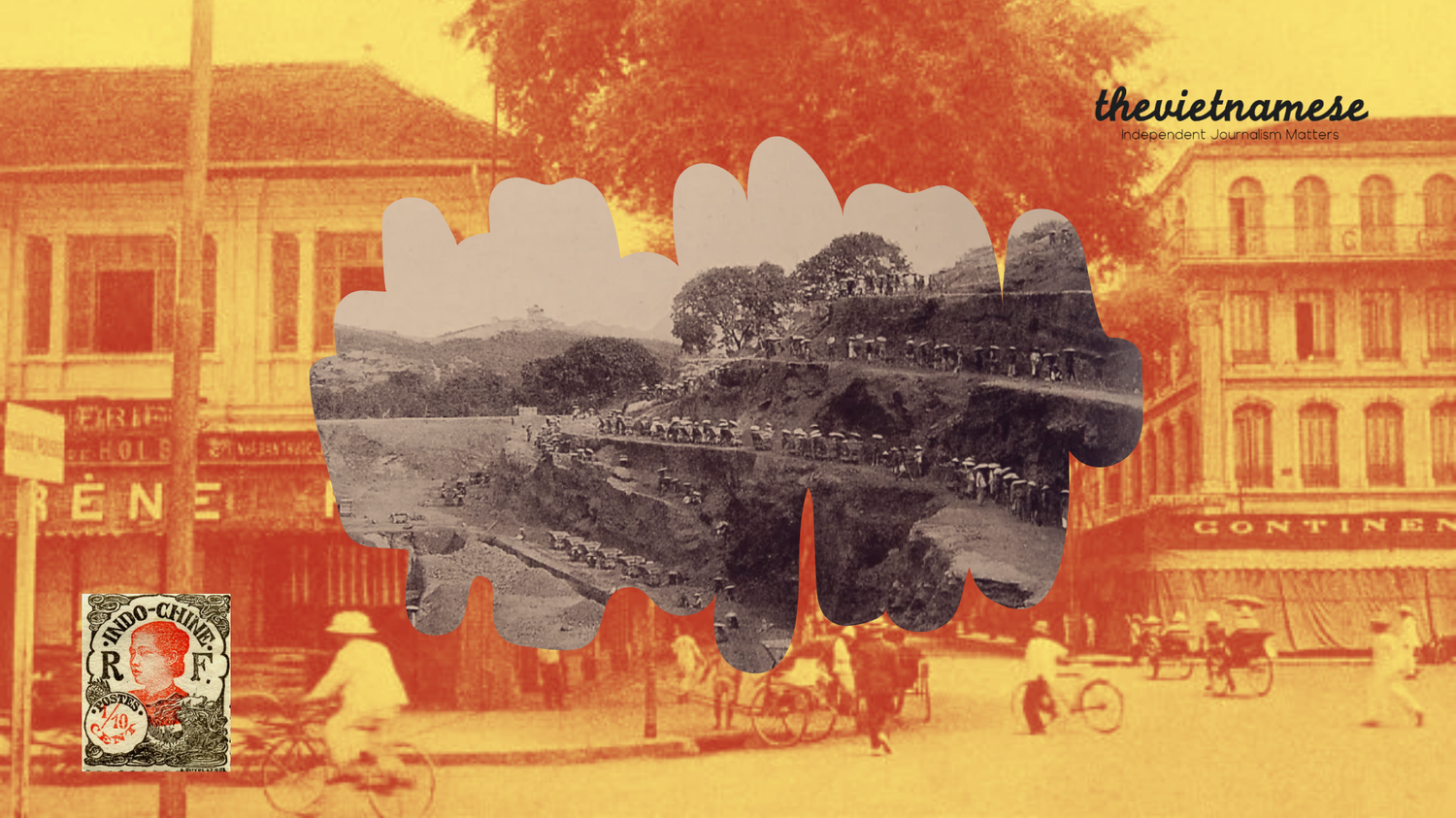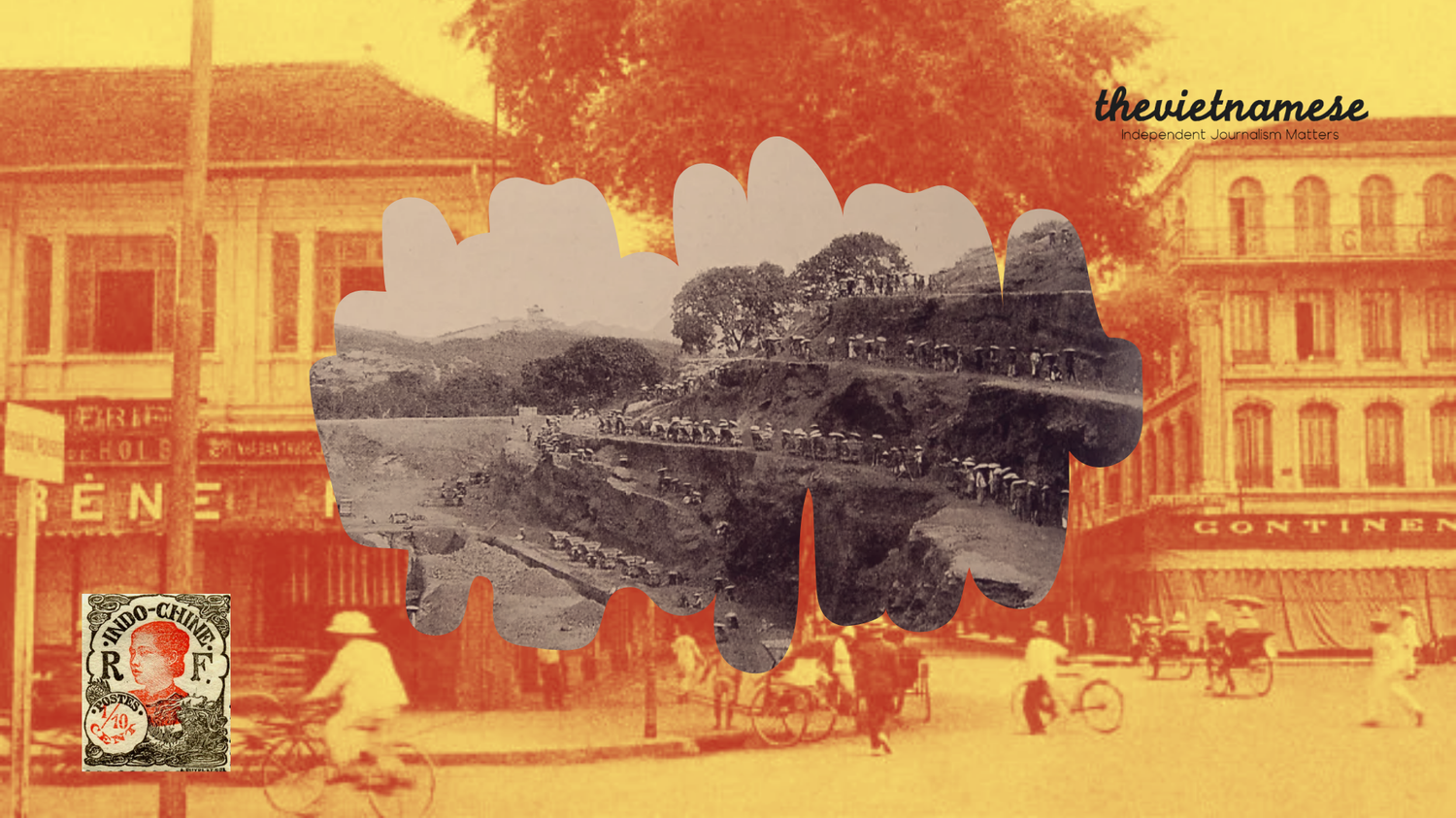
The visit of French President Emmanuel Macron to Việt Nam on May 26, 2025, marked a pivotal moment in strengthening bilateral relations between both countries. This relationship carries a complex colonial legacy and is now evolving into strategic cooperation amid a rapidly shifting geopolitical landscape. Through agreements in aerospace, energy, culture, and education, France has positioned itself as an alternative partner to powers like the United States and China, reaffirming its strategic autonomy in Southeast Asia.
Emmanuel Dupuy, President of the Institut Prospective et Sécurité en Europe (IPSE)—an independent French research organization focused on European security, defense, and geopolitics—and Associate Professor of Geopolitics at the Catholic University of Lille, alongside Nguyễn Sơn Hà, an activist and member of the Vietnamese community in France, and Ngô Thị Ngoan, a longtime labor rights activist in Paris, offer different perspectives on this visit.
Dupuy provides a geopolitical analysis contextualizing France’s global role, while Nguyễn and Ngô Thị Ngoan deliver a personal reflection on the colonial legacy and the contribution of the Vietnamese diaspora in France to deepening ties. They all emphasize the importance of confronting the past with respect and building an equitable partnership that leverages economic, cultural, and educational opportunities without neglecting dialogue on human rights and historical reconciliation.
A Colonial Legacy: A Complex Past
The relationship between France and Việt Nam dates back to 1858 and remains deeply ambivalent. Dupuy explains that, unlike other former French colonies like Algeria—which became a French department—or the protectorates of Tunisia and Morocco, Việt Nam was administered as a colonial territory with less institutional integration.
This has influenced post-colonial dynamics and the sense of belonging among the Vietnamese community in France, which, Dupuy argues, “feels Vietnamese” rather than French. Nguyễn describes the colonial legacy as complex: “It left historical wounds, but also a clear influence on culture, architecture, the administrative system, and education.” Living in France, Nguyễn navigates two identities, honoring Vietnamese roots while coexisting with a French cultural heritage.
Ngô Thị Ngoan, a longtime labor rights activist in Paris and former refugee, echoes this duality: “Like most Vietnamese people, I strongly oppose colonialism and regard the French colonial regime in Việt Nam as a dark chapter in our national history. But its cultural impact endures—from the Latin-based Quốc ngữ script to Catholicism and even culinary staples like phở and bánh mì. It shaped the bicultural identity of many Vietnamese intellectuals.”
Both agree colonialism has had a lasting impact. Dupuy sees it as a historical factor shaping current geopolitical dynamics, while Nguyễn and Ngô experience it personally in their diaspora identities.
Historical Intertwining and National Liberation
Modern Việt Nam’s history is intertwined with France in surprising ways. Dupuy highlights that the Indochinese Communist Party began as a branch of the French Communist Party, and Hồ Chí Minh, the central figure of the Vietnamese revolution, was politically active in France.
“The Vietnamese revolution was born in France, not in Việt Nam,” he notes, pointing to the paradox of a national liberation movement supported by French anti-colonialists—a phenomenon similar to the Algerian revolution. Nguyễn acknowledges Hồ Chí Minh’s historical importance but notes that his legacy is debated among Vietnamese, especially in the diaspora.
Macron’s 2025 visit to Hồ Chí Minh’s Mausoleum was a symbolic gesture of reconciliation, but Nguyễn believes “the meeting with young Vietnamese was more meaningful, signaling openness to candid dialogue about colonial suffering.”
Ngô agrees, emphasizing that “Vietnamese people generally feel at peace with the colonial past—as long as it’s not reopened to provoke controversy. These visits are diplomatic gestures, coordinated with the Vietnamese government.” Both Dupuy and Nguyễn agree that symbolic acts are valuable, but deeper dialogue is needed to heal past wounds.
From Decolonization to Strategic Reengagement
Historically, France’s withdrawal from Việt Nam following the 1954 Geneva Accords marked a turning point. According to Dupuy, France “abandoned the colony, paving the way for the emergence of South Việt Nam,” but relations remained distant until the 1973 Paris Accords amid strong American influence. France, under Charles de Gaulle, recognized the People’s Republic of China in 1964—far earlier than the US in 1971—underscoring its autonomous geopolitical stance.
Dupuy interprets Macron’s visit as a reaffirmation of French strategic autonomy: “Macron wanted to signal that France belongs in Southeast Asia, despite its colonial past,” echoing de Gaulle’s 1966 speech in Việt Nam, which criticized colonization and advocated Third World development.
Nguyễn concurs that France seeks a balanced partnership but stresses the need for a “less imposing” cooperation respectful of international standards on human rights, democracy, transparency, and national sovereignty.
Ngô adds that hopes among the diaspora were not fully met: “Before Macron’s trip, Vietnamese associations in France sent a letter asking him to raise the issue of political prisoners. Sadly, none of that was mentioned. The visit focused entirely on trade. Without meaningful engagement on rights and freedoms, these relations will remain superficial—benefiting only Việt Nam’s ruling elite.”
Strategic Opportunity Amid Global Realignment
Macron’s visit occurred in a context where Việt Nam, disappointed by the US reluctance to deepen relations, is seeking alternative partners. With nearly €9 billion in French investments, the visit solidified major deals in arms, aircraft, satellites, and vaccines—bolstering the strategic partnership.
Dupuy highlights that Macron’s visit—his first to Việt Nam and the first by a French president since François Hollande almost 15 years ago—signals renewed French interest in the region, contrasting sharply with the frequent visits to former North African possessions (two to three per year).
“France positions itself as a dialog partner to everyone, from China-aligned neighbours like Cambodia to US-aligned ones like the Philippines,” he says. Nguyễn sees in these agreements an opportunity for the Vietnamese diaspora in France to “act as a bridge between the civil societies and small businesses of both countries.”
Both recognize the economic potential of the partnership, but Ngô insists on including civil society and promoting human rights: “Our greatest hope was for France to speak up on behalf of Việt Nam’s more than 170 political prisoners. But that was absent. Civil society must be part of any truly equitable partnership.”
According to Dupuy, France’s approach differs from the US focus on containing China through regional alliances—instead, France seeks positive relations with all stakeholders.
“Macron wanted to reaffirm that beyond Washington, Moscow, and Beijing, there is a Third World, and France can be a credible partner.” Nguyễn shares this view but stresses that France should be a “flexible and respectful” partner capable of supporting Việt Nam’s development without imposing external models.
Diaspora’s Role: Cultural and Educational Bridges
A central aspect of the visit was strengthened cooperation in education and culture. Dupuy notes that France is investing in support for Vietnamese students studying there and promoting the French language in Việt Nam, building enduring cultural bridges. Nguyễn, who benefited from study programs in France, regards these exchanges as “among the most effective ways to build solid ties between the two countries.”
Ngô Thị Ngoan adds that language and education exchanges are essential: “For newcomers from Việt Nam, French can be extremely difficult. These programs help bridge that gap and open access to broader knowledge, especially important in a country where independent journalism is absent.”
The Vietnamese community in France—one of the largest in Europe—preserves its heritage through festivals like Tết, Hùng Vương commemorations, and Vietnamese language classes. “These events not only keep traditions alive but introduce Vietnamese culture to French friends,” Nguyễn explains.
Ngô highlights that many diaspora members, including herself, actively participate in bilingual publications, human rights campaigns, and prisoner advocacy.
Dupuy adds that, unlike other post-colonial communities, the Vietnamese diaspora does not face major integration issues. However, Nguyễn and Ngô point to subtle workforce discrimination and low political representation.
“Future generations may struggle to maintain the language and may not fully understand the reasons their parents or grandparents fled in search of freedom,” Ngô warns. “We must preserve memory and mobilize youth to become active citizens—in both France and Việt Nam.”
Symbolic Acts and Reconciliation
Symbolic acts during the trip—such as commemorating Indochina War fighters and visiting Hồ Chí Minh’s Mausoleum—were interpreted as steps toward reconciliation. Dupuy regards them as a call back to de Gaulle’s vision, recalling his 1966 critique of colonization. Nguyễn values these gestures but considers the dialogue with Vietnamese youth even more meaningful. “It signaled openness to confronting colonial suffering,” they say.
Ngô agrees, but cautions: “Reconciliation must be substantive—not just symbolic. Without confronting Việt Nam’s current human-rights situation, these visits risk becoming empty ceremonies.”
Toward a Shared Future
Looking ahead, Dupuy and Nguyễn envision a more inclusive, multidimensional Việt Nam–France relationship. Dupuy sees France playing a key role in sectors such as education, healthcare, and renewable energy, offering a cooperation model respectful of Việt Nam’s autonomy.
Nguyễn and Ngô add that the Vietnamese diaspora can serve as a natural bridge for cultural, educational, and political initiatives, provided there is genuine commitment to democracy, transparency, and civil society. Both view the 2025–2028 Action Plan as an opportunity to deepen ties, but Nguyễn emphasizes the need to involve civil society and foster real reconciliation—including the release of political prisoners and more meaningful engagement with the diaspora.
Macron’s visit to Việt Nam marked a turning point not only in strategic partnership but also in the effort to sincerely confront the colonial past. Dupuy, Nguyễn, and Ngô’s perspectives converge on the importance of equitable cooperation that valorizes the diaspora and promotes cultural and educational exchange.
While Dupuy highlights the geopolitical positioning of France, Nguyễn and Ngô stress concrete commitments to human rights and reconciliation. Together, their voices offer a comprehensive vision of the challenges and opportunities in this relationship, one that could redefine France’s role in Southeast Asia and Việt Nam’s future as a global actor. The success of this partnership will depend on building bridges among governments, civil societies, and diasporas—a process that requires respecting the past while focusing on a shared future.

